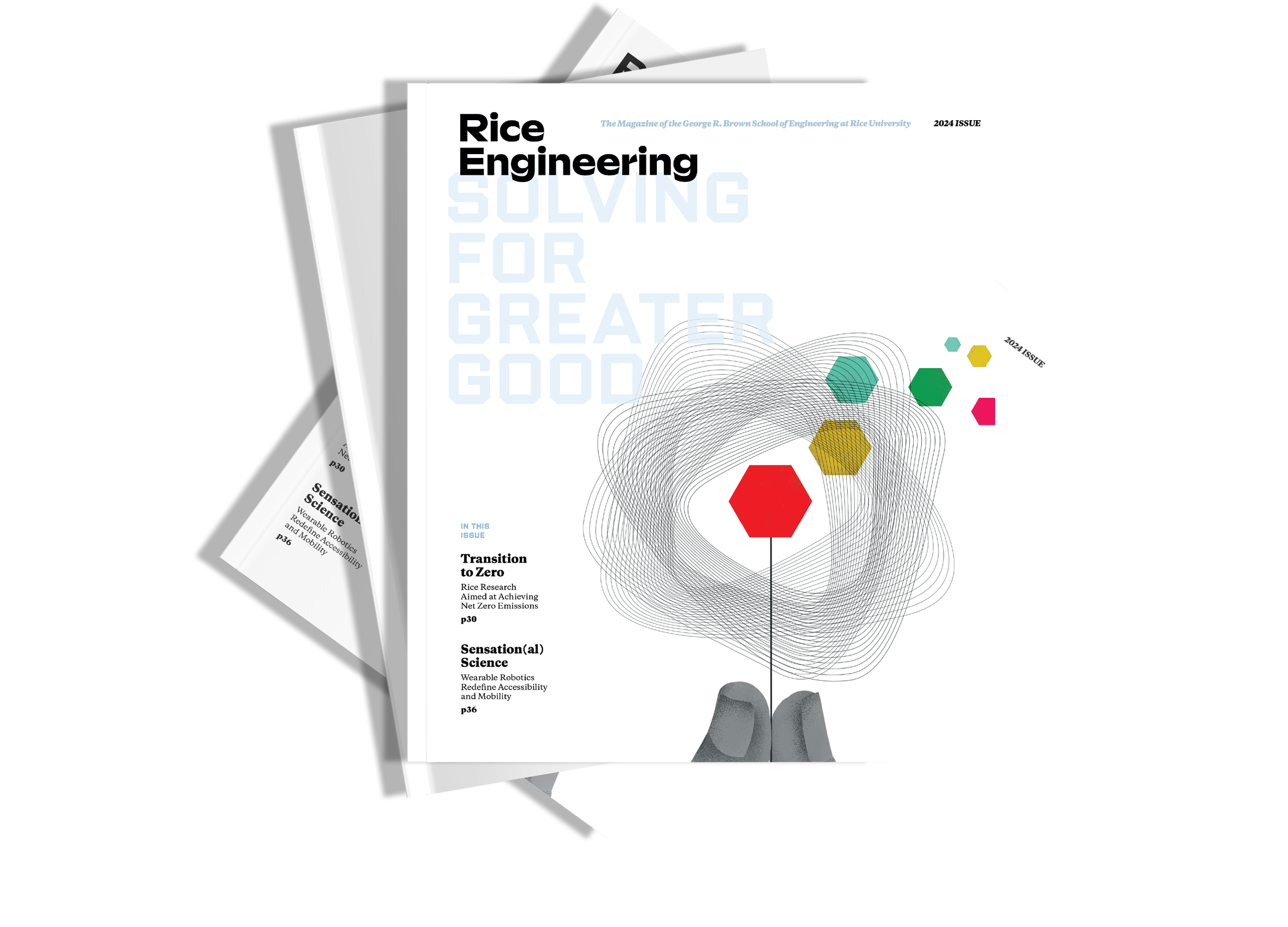
The spring 2024 issue of Rice Engineering Magazine is here!
At Rice Engineering, we are driven by a passion for innovation and a commitment to responsible engineering practices. It’s with great excitement that we unveil the new design of Rice Engineering magazine, which underscores our dedication to excellence in research, education, and service. The 2023-24 issue is full of news about how Rice Engineering is solving for greater good.
Rice Biotech Launch Pad Accelerator Fast-tracks Health Discoveries into Cures

Reginald DesRoches, Rice President
The Rice Biotech Launch Pad, a Houston-based accelerator, is focused on turning the health and medical technology discoveries of Rice researchers into cures. It provides a 15,000 square feet accelerator space that connects these researchers with a national network of industry executives and funding sources.
“The Launch Pad is the university’s first large-scale initiative designed to help advance internally discovered platform technologies from concept to clinical studies and commercialization,” said Omid Veiseh, associate professor of bioengineering and CPRIT Scholar in Cancer Research.
Veiseh, together with Paul Wotton, co-founder of Avenge Bio and other companies backing technologies discovered in Rice labs, is supporting highly differentiated projects while driving the expansion of Houston as a world-class medical innovation ecosystem.
Veiseh, who will serve as the accelerator’s faculty director, said, “We have the infrastructure, financial backing and talent in Houston to do more in creating new medicines to cure disease. The Launch Pad will help our faculty compete for larger grants from such agencies as ARPA-H, DARPA and the NIH to support translational work involving platform technologies that can address multiple therapeutic areas.”
The Biotech Launch pad is already administering THOR (targeted hybrid oncotherapeutic regulation), a technology funded by the Advanced Research Projects Agency for Health (ARPA-H), which has awarded Rice $45 million to rapidly develop sense-and-respond implant technology that could slash U.S. cancer-related deaths by more than 50%.
Within months of its founding, the Launch Pad announced a peer-reviewed publication in Nature Communications that details development of a rechargeable device — an electrocatalytic on-site oxygenator that produces oxygen to keep cells alive inside an implantable “living pharmacy,” potentially improving the outcomes of cell-based therapies.
Wotton, who will serve as the accelerator’s executive director and chairman, said, “Rice is well-positioned with its faculty, support and location in the Texas Medical Center. Omid and the leadership team at Rice have demonstrated success in securing more than $160 million in grants and spinning out several companies. The Rice Biotech Launch Pad will build on this overall success and expand it by integrating Houston’s scientific, engineering, clinical and product development communities.”
